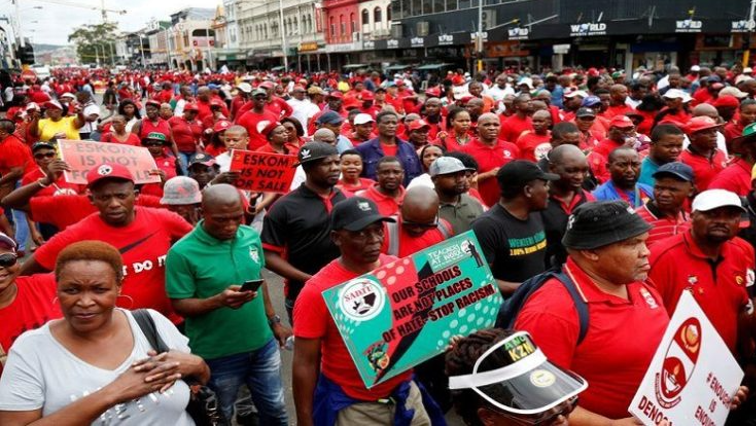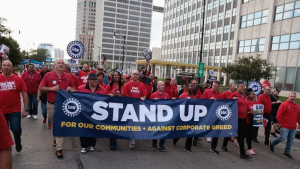Labour experts have cautioned against the unrealistic approach to the 2024 round of wage negotiations. Labour unions in various sectors of the economy are gearing up for what could be another tough wage talks this year.
Wage negotiations will take place in a very difficult economic environment prompted by high inflation, a poor trading environment and job cuts. The rising cost of living and high debt service costs have eroded the limited buying power of the consumer. Now, the country’s workers are looking towards the 2024 wage negotiations for a reprieve.
The Congress of South African Trade Unions (Cosatu) is the largest of the country’s three main trade union federations. It says both the public and private sector workers are struggling to afford basic goods. The public sector workers have a multi-year agreement in place this year.
This will see the focus shifting to the private sector.
“The truth is that most workers are drowning in debt and yes, workers who have jobs would count themselves to be fortunate to an extent, but they also support relatives who don’t have jobs or who’ve lost wages. On average, each worker supports around seven relatives. So, the annual increase in workers is really critical. They do a lot of work in both the public and the private sector and state-owned enterprises as well … should make sure that at the very least workers receive an increase which is in line with inflation,” says Matthew Parks, from Cosatu.
The country’s Consumer Price Inflation (CPI) rate is expected to average 5%.
Labour unions use CPI as a yardstick during salary negotiations. Few unions that have already tabled their wage expectations for this year are demanding around 7% wage inflation adjustments.
It’s expected that most employers could eventually settle between 5% and 6%. Experts say both employers and employees have been negatively affected by the impact of the current sluggish economic growth.
The parties are urged to approach the upcoming round of wage talks with honesty and transparency.
“To employers if you possibly can, try and find a way to pay a wage increase that is even if it’s marginally above CPI because you can to some degree justify that you are making an effort and making the kind of sacrifices, financially, to at least try and maintain and slightly improve employee lifestyle by paying above inflation. Not much! It can be a couple of percentage points. I think that’s helpful and from a trade union point of view it’s again realistic,” says Tony Healy, labour expert.
Seifsa, an employer federation in the metals and engineering sector representing 1,300 employer companies, says pre-bargaining talks have already started in the sector and are hopeful for a fruitful round of talks with unions.
“We negotiate with Numsa, the National Union of Mineworkers, Solidarity and Mewusa, Uasa and the South African Equity Workers Association. Trade unions are still strong in our sector and carry the mandate of their workers. Seifsa represents its 1,300 members who collectively employ over 170,000 workers in the industry of the total 230,000 employees who are still engaged in our sector. We carry a huge responsibility together with the unions to put the interest of South Africa first. We are committed to doing so,” says Lucio Trentini, Seifsa CEO.
The 2021 leg of wage talks in the steel sector dragged on for three weeks, leading to a deadlock, with the industry losing R700 million per day.
Economists say both parties can’t afford disruptions to business in this unstable economy.
“There must also be good faith negotiations. To go into negotiations suggesting an increase of 15% plus an increase in housing allowances, medical aid allowances, overtime allowances, etc. I cannot regard those as good faith negotiations. I regard that really as taking positions that cannot be met to force a strike. You must remember that in a strike there’s only one group that wins and that is the management of the trade union because management members of trade unions continue to draw their salaries during the strike. Workers suffer during strikes because they are not paid while employers suffer during strikes because they didn’t have production output during the strike,” says economist Jannie Rossouw.
Concerns were also raised over several companies embarking on retrenchment processes and those under business rescue and liquidation. The 2024 Wage talks in the metals and engineering sector are expected to kick off in March.






